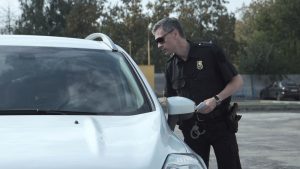Do you have to answer a police officer’s questions? You’ll want to know the answer before the police ask you to chat. Follow along for the ins and outs regarding when you must answer law enforcement questions.
The Fifth Amendment Right to Silence
Do you enjoy watching television crime dramas? If so, you know that the United States Constitution has something to say about talking to law enforcement. Essentially, the Fifth Amendment says that you don’t need to answer police questions if doing so will help to convict you of a crime.
Now, you need to understand that courts have argued about what this Constitutional guarantee means for generations. Consequently, it’s not necessarily simple to determine when to speak with a police officer. Nonetheless, it’s vital to remember that you never need to answer questions after receiving a Miranda warning.
What is a Miranda Warning
The Miranda warning is the language that law enforcement must use when placing you under arrest. Pay close attention to everything that the officer says during this time. A Miranda warning explains your legal rights as an arrested individual.
A complete Miranda warning includes some version of:
- The right to silence
- Your words can count against you
- The right to an attorney
- The court will provide an attorney if you can’t afford to hire one
One of the most fundamental aspects of a Miranda warning is the right to silence. Never forget that you do not have to answer any questions once you’re arrested. It’s also a smart move to wait to answer questions until you are with your attorney.
Keep in mind that the Miranda warning comes into play after an arrest. Read below to find out if you can legally stay silent during non-arrest situations.
When Do You Have to Answer a Police Officer’s Questions?

Know your rights when you talk with police
Are there ever circumstances where you must answer questions from law enforcement? Generally, the answer is no. Most often, you don’t have to provide anything beyond your identification.
The police cannot compel you to give information about a possible crime. Law enforcement can arrest you if they think that they have sufficient evidence that you committed a crime. If they don’t have enough evidence to detain you, your silence puts the burden on them to find the evidence.
Don’t answer questions if the police suspect you of DUI. You may face arrest if you refuse to perform field sobriety or preliminary breath tests. If arrested, politely decline to answer any questions until you’ve spoken with your lawyer.
The ACLU recommends that you stay quiet when interacting with the police. You won’t be in trouble for politely refusing to answer questions. Don’t hesitate to keep quiet until you’ve had a chance to talk with a lawyer.
Innocent People Shouldn’t Answer Police Questions
Should you stay quiet even if you have nothing to hide? The police can unfortunately make mistakes when investigating crimes. Gibson Bail Bonds bails plenty of innocent people out of jail who made the mistake of chatting with the cops.
Do you realize that the police are legally able to lie to you during an investigation? On the other hand, you will commit a crime if you lie to the police. Don’t give information merely because a police officer tells you that things will go better for you if you cooperate.
You can’t know in advance how law enforcement might use your answers to their questions. If you wait until your attorney arrives, you’ll be in a safer position to chat with the police if you desire. It’s always ok to stop answering questions if you don’t want to continue the conversation.
Last Thoughts
To answer the question, do you have to answer a police officer’s questions about a crime? The United States Constitution protects you from self-incrimination, so the answer is no. In most cases, you should be safe and silent until you meet with an attorney.
Gibson Bail Bonds is here to post your bond when you find yourself behind bars. Contact us today for details on getting out of jail in the Harrisburg, PA, metropolitan area.


